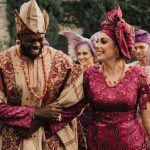In Nigeria, Christmas is not just a holiday; it’s a vibrant, colorful, and deeply cherished season of joy that brings families, friends, and communities together. Unlike the snowy Christmases depicted in Western media, Nigeria’s Christmas is filled with sunshine, harmattan winds, and an array of unique traditions that reflect the country’s rich cultural diversity. From bustling markets and lively carols to extravagant feasts and heartfelt reunions, Nigerians celebrate Christmas in a way that is both spirited and deeply rooted in our cultural identity.
If you’ve ever wondered what makes a Nigerian Christmas special, you’re in for a treat. In this blog post, we’ll explore the unique traditions that define the season in different parts of Nigeria, and what makes it such an unforgettable time of year.
1. Homecoming
Christmas in Nigeria is synonymous with homecoming. It is the time when people from all walks of life, whether living abroad or in bustling cities like Lagos, Abuja, and Port Harcourt, travel to their hometowns to celebrate with extended family. This annual migration is one of the most heartwarming aspects of Christmas in Nigeria.
For many Nigerians, Christmas isn’t complete without visiting their roots. Villages and hometowns come alive as roads become busy with cars and buses packed to the brim with people and goods. The joy of reconnecting with loved ones and the sense of belonging that comes with being back home are unparalleled.
2. Decorations: Lighting Up the Season, Naija Style
While Christmas trees and fairy lights are a common sight, Nigerians add their own flair to Christmas decorations. In many neighborhoods, you’ll find streets lined with colorful lights, ribbons, and banners. Churches and homes are adorned with garlands and Christmas-themed fabrics, often sewn into traditional outfits like Ankara or lace.
In some villages, community efforts lead to the construction of gigantic Christmas stars or nativity scenes using locally sourced materials. These displays often become landmarks where families gather for photos and storytelling.
3. Caroling with a Nigerian Twist
Christmas carols are a global tradition, but in Nigeria, we spice it up with local languages, rhythms, and instruments. Church choirs rehearse for weeks to deliver captivating renditions of carols in Igbo, Yoruba, Hausa, Efik, and other local languages.
In the Eastern part of Nigeria, for instance, masquerade dances sometimes accompany carol singing. These masquerades, known as Mmanwu, represent ancestral spirits and add a cultural dimension to the festivities. Meanwhile, in other parts of the country, gospel artists release special Christmas albums filled with praise and worship songs to set the tone for the season.
4. Special Food
Christmas in Nigeria is a time to eat to your heart’s content. Food plays a central role in the celebrations, and every household aims to outdo itself with a variety of dishes. Some of the popular delicacies include:
Jollof Rice: A party isn’t complete without this staple. Every Nigerian family has its unique twist on the recipe, and debates about whose jollof is better always add spice to the season.
Fried Rice: Often served alongside jollof rice, fried rice is another Christmas favorite, usually packed with vegetables, chicken, and shrimp.
Goat Meat Pepper Soup: This spicy, flavorful soup is a staple, especially during the chilly harmattan evenings.
Pounded Yam and Egusi Soup: Loved by many, this combination brings families together around large bowls of deliciousness.
Chin Chin and Small Chops: These snacks are shared generously with neighbors and visitors.
In many communities, families slaughter chickens, goats, or cows to prepare a grand feast. It’s common to see people exchanging plates of food with neighbors, spreading the spirit of sharing and love.
5. New Clothes: The Christmas Owambe Look
For Nigerians, Christmas is a time to showcase the latest fashion. Tailors are busy throughout December, sewing Asoebi and other traditional attires for families and friends. Children look forward to wearing their “Christmas clothes” – a tradition where parents buy new outfits for their kids to wear to church and family gatherings on Christmas Day.
On Christmas morning, you’ll find families dressed in vibrant matching outfits, stepping out in style to attend church services and visit loved ones. It’s a day to shine and show gratitude for the blessings of the year.
6. Church Services
At its core, Christmas in Nigeria is a deeply religious celebration. Many families start the day with a church service to commemorate the birth of Jesus Christ. Churches are often packed with worshippers dressed in their finest attire, singing hymns, and listening to sermons about the significance of the season.
In some denominations, Christmas Eve is marked by a night vigil known as Watch Night Service, which features prayers, carol singing, and dramatic re-enactments of the nativity story. This spiritual aspect of Christmas underscores the gratitude and hope that the season brings.
7. Visiting and Sharing Love
The spirit of community shines brightly during Christmas in Nigeria. It’s a time when people open their doors to friends, family, and even strangers. Visiting others to exchange gifts, share meals, and catch up on life is a cherished tradition.
In many villages, children go from house to house singing Christmas songs, hoping to receive small gifts or money. This tradition, fondly referred to as “knocking on doors,” is a source of joy for both the young and old.
8. Masquerades and Cultural Dances
In many parts of Nigeria, especially in the East and South-South regions, masquerade performances are a highlight of the Christmas season. These masquerades, often accompanied by traditional drumming and dancing, are deeply rooted in cultural heritage.
Communities organize cultural festivals where young and old come together to enjoy these performances. The dances, music, and colorful costumes add a unique flavor to the festivities.
9. Christmas Markets and Shopping Frenzy
No Nigerian Christmas is complete without a trip to the market. Starting from early December, markets across the country become a hive of activity as people shop for Christmas essentials. From food items to clothing, decorations, and gifts, the energy is infectious.
A visit to the market is often accompanied by haggling and laughter. Vendors display their goods with catchy slogans and festive music blaring in the background. In some cities, like Lagos, special Christmas fairs and concerts attract families looking for a fun day out.
10. Fireworks and Street Carnivals
The Nigerian love for grandeur comes alive during Christmas with fireworks displays and street carnivals. Children and adults alike enjoy lighting sparklers, knockouts, and bangers to celebrate the season.
In cities like Calabar, the famous Calabar Carnival, often dubbed “Africa’s Biggest Street Party,” takes center stage. This month-long celebration features colorful parades, music, dance, and cultural performances, attracting tourists from around the world.
11. Harmattan: The Seasonal Weather
The harmattan season, with its dry, dusty winds, is an integral part of the Nigerian Christmas experience. While it may not be snowy, the harmattan brings its own charm. The chilly mornings and evenings create a cozy atmosphere that perfectly complements the festive mood.
12. Giving Back to the Community
Christmas in Nigeria is also a time to remember the less privileged. Many individuals, churches, and organizations organize charity events, donating food, clothing, and gifts to orphanages, hospitals, and underserved communities.
This spirit of giving back reflects the true essence of Christmas – love, compassion, and generosity.
Conclusion
Christmas in Nigeria is a magical blend of faith, culture, and community spirit. It’s a time when the country’s diversity shines through its unique traditions, uniting people in celebration and gratitude. Whether it’s the laughter of children, the aroma of jollof rice, the melodies of carols, or the colorful masquerades, Christmas in Nigeria is an unforgettable experience that touches the heart.
So, if you ever get the chance to celebrate Christmas in Nigeria, embrace the warmth, joy, and vibrant traditions that make it truly special. After all, there’s no Christmas quite like a Nigerian Christmas!



Leave a Reply